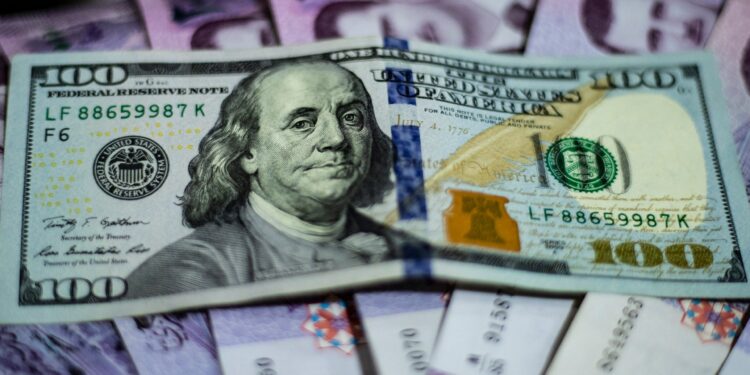1/26/2025–|Last updated: 1/26/202503:34 PM (Mecca time)
The exchange rate of the Syrian pound rose against the dollar today, Sunday, in parallel market transactions, while it remained stable in official transactions, according to the bulletin of the Central Bank of Syria.
Official and parallel market prices
The price of the Syrian pound rose in the parallel market in the cities of Damascus, Aleppo, Idlib and Al-Hasakah to 11,600 pounds for purchase against the dollar from 11,650 pounds in trading yesterday evening. The selling price also increased to 11,700 from 11,750 pounds recorded yesterday evening.
At the Central Bank, the exchange rate of the Syrian pound stabilized today at 13 thousand pounds for purchase against the dollar, while it recorded 13 thousand and 130 pounds for sale.
Factors affecting the exchange rate of the Syrian pound
- Syrian banks refrain from pumping the local currency into the market, which pushes merchants and manufacturers to sell the dollar to obtain the local currency from the parallel market to conduct their business.
- The government holds limited amounts of the Syrian pound to meet a 400% increase in employee salaries starting next month, which increases the government’s demand for the Syrian pound.
- Increased supply of dollars, and the Central Bank of Syria held on to local currency reserves.
- European Union countries are expected to decide to ease economic sanctions against Syria at a meeting in Brussels tomorrow, Monday.
- The United States has eased its sanctions on Syria, allowing transactions with government institutions and some energy transactions, and allowing the transfer of personal funds to Syria, including through the Syrian Central Bank.
- The Governor of the Central Bank of Syria, Maysaa Sabreen, said earlier that the United States allowing personal transfers from Syrians abroad was a positive step, calling for the sanctions to be completely lifted.
- Economy Minister Basil Abdel Hanan told Al Jazeera Net earlier that there is a plan to stabilize the exchange rate in order to stabilize the markets and move the wheel of trade exchange.



